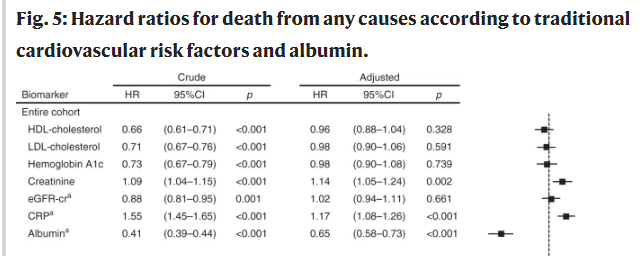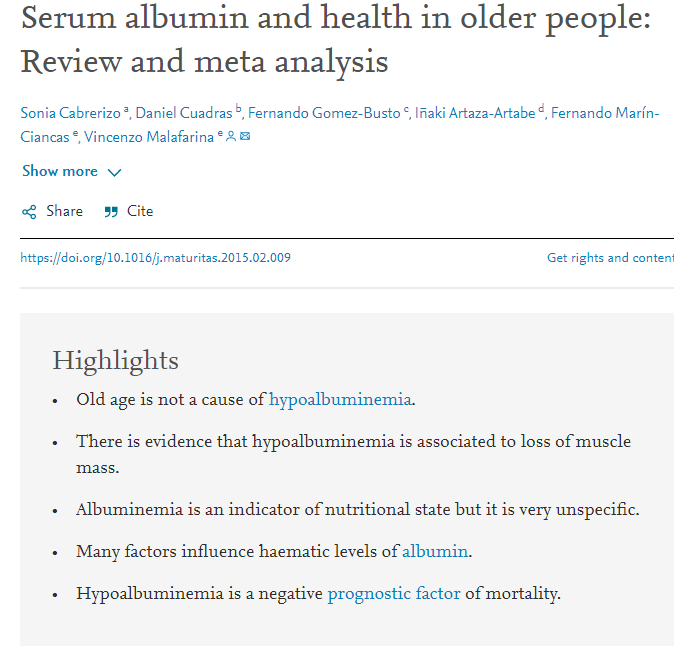In very old people, albumin was a more important risk marker than traditional risk factors such as HDL, LDL, and HbA1c.
https://t.co/1wolLynI1O
"serum albumin concentration is inversely related to mortality risk in a graded manner over its entire range"
in both healthy people and those with acute or chronic illness.
https://t.co/OMQHNwX8Pd
But, low albumin is NOT a consequence of normal aging.
So, what's going on?
https://t.co/p3RR7SyjUQ
While there are suggestions that low albumin is a sign of undetected illness...
albumin is also associated with loss of muscle mass.
https://t.co/1rW4BluMAs
"the increased risk of disability with low serum albumin concentrations observed in the elderly may actually reflect an association with sarcopenia."
Sarcopenia = pathological muscle loss
https://t.co/FdNA1s4s8V
Old age is not a cause of low albumin, but is associated with muscle loss
and indicates malnutrition.
Low dietary protein leads to lower albumin synthesis.
https://t.co/ZiIjBA69us
Albumin Synthesis Is Diminished in Men Consuming a Predominantly Vegetarian Diet
Since albumin is itself a protein, this points to lower protein intake
https://t.co/qZ9xXlOwML
Conclusion: low albumin is a strong risk factor for mortality.
It's associated with low muscle mass and low protein intake.
Increased dietary protein and resistance training may be the best ways to counteract low albumin.





